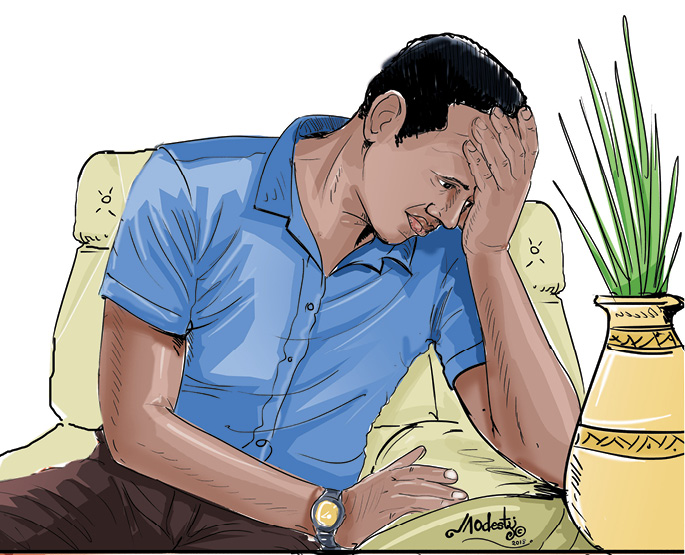Kindly discuss Insomnia
I saw a headline in a recent edition of Daily Trust newspaper in which ‘suicide’ tendencies and ‘depression’ were mentioned among the causes of ‘insomnia’. Kindly share useful information on insomnia as it is a common problem among the youths in this country. Habashee V. Thanks, Habashee for your question. According to some definitions, Insomnia […]

I saw a headline in a recent edition of Daily Trust newspaper in which ‘suicide’ tendencies and ‘depression’ were mentioned among the causes of ‘insomnia’. Kindly share useful information on insomnia as it is a common problem among the youths in this country.
Habashee V.
Thanks, Habashee for your question. According to some definitions, Insomnia is difficulty falling asleep or staying asleep, even when a person has the chance to do so. People with Insomnia can feel dissatisfied with their sleep and usually experience one or more of the following symptoms: fatigue, low energy, difficulty concentrating, mood disturbances, and decreased performance in work or at school.
Insomnia may be characterised based on its duration:
- 1. Acute Insomnia is brief and often happens because of life circumstances (for example, when you cannot fall asleep the night before an exam, or after receiving stressful or bad news). It tends to resolve without any treatment.
- 2. Chronic Insomnia is disrupted sleep that occurs at least three nights per week and lasts at least three months. Chronic Insomnia disorder can have many causes. Changes in the environment, unhealthy sleep habits, shift work, other clinical disorders, and certain medications could lead to a long-term pattern of insufficient sleep. Chronic Insomnia can be co-morbid, meaning it is linked to another medical or psychiatric issue.
People with Insomnia tend to have difficulty falling asleep (onset), staying asleep (maintenance), and/or they wake up too early in the morning. Treatment for Insomnia can include behavioral, psychological, medical or some combination therapy.
Symptoms of Insomnia are:
- 1. Difficulty getting to sleep (taking more than 45 minutes to get to sleep),
- 2. Difficulty staying asleep (frequent awakenings and difficulty getting back to sleep),
- 3. Early morning waking.
- 4. Feeling tired and un-refreshed in the morning.
Insomnia can be described as either transient, intermittent or chronic. Transient, lasts only a few nights to a few weeks. Intermittent Insomnia occurs occasionally but not every night. Chronic Insomnia occurs most nights and lasts three or more weeks.
What are the likely causes?
There is no single cause for Insomnia, but several factors are known to contribute.
- 1. Lifestyle – eating late at night, jet lag, hunger, too much caffeine, stimulant drugs, including nicotine, especially in the evening.
- 2. Environment – noise (eg partner snoring), uncomfortable bed or bedroom.
- 3. Physical health problems – sleep apnoea (abnormal breathing while asleep), asthma, tinnitus (musical sound in the ear), prostate problems that mean frequent trips to the toilet at night, and indigestion.
- 4. Psychological – including stress or grief.
- 5. Mental health problem such as depression or anxiety.
- 6. Medication – eg certain tablets for asthma
- 7. Absence of/or unfulfilled sexual life
- 8. Rarely, Insomnia occurs even when none of the above is present. This is known as ‘Primary’ Insomnia.
Examples for suggestive remedies?
- 1. Avoid taking cat-naps (siesta) during the day.
- 2. Reduce coffee intake especially in the evening.
- 3. For those who take alcoholic drinks. It should be done in moderation.
- 4. Reduce smoking – nighttime breathing problems are more likely in smokers.
- 5. Regular exercise, but avoid strenuous activity immediately before going to bed.
- 6. Try to get into a daily routine. Go to bed the same time each night and get up the same time each morning.
- 7. Avoid heavy or rich meals, especially few hours before bedtime.
- 8. If you cannot sleep, get up and read until you feel sleepy.
- 9. Mentally dealing with the day’s unfinished business is also helpful. Writing down any worries to deal with the next day may help to clear them from the mind and prevent them from re-surfacing in the early hours.
